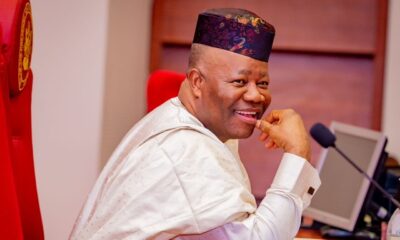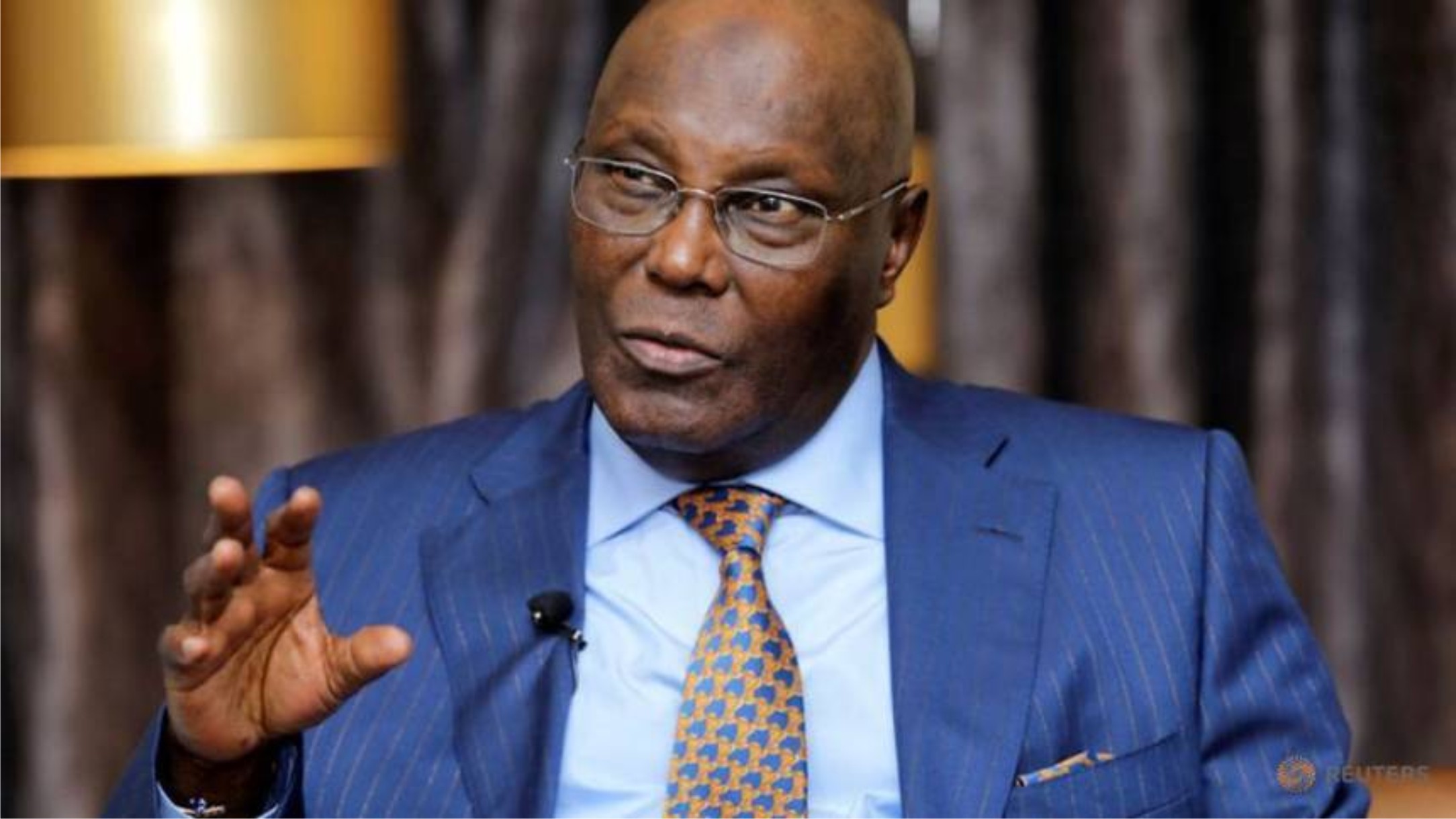Business
FG Okays N3bn For PH Airport Rehabilitation

The Federal Executive
Council (FEC) last Wednesday approved about N3 billion for the completion of the rehabilitation work on terminal building phase two and international wing of the Port Harcourt International Airport.
The Minister of State for Aviation, Sen. Hadi Sirika, stated this when he briefed State House correspondents on the outcome of the FEC meeting, which was presided over by President Muhammadu Buhari.
He said that N1.6 billion would be expended on rehabilitation of the international wing of the airport while completion of work on the terminal building phase 11 of the airport would cost N1.4 billion.
According to him, the council approved the project as it is captured in the 2016 and 2017 budget.
“In additional to the approval given for the eight new private universities, the revised total estimate cost of finishing Port Harcourt airport both domestic and international wing, so, Federal Executive Council approved the completion with the funding, as it is captured within the 2016 and 2017 budget.
“So, very soon we will complete that very important airport, especially the arrival, Port Harcourt airport has been tagged the worst airport in the world.
“But, by the grace of God and the wisdom of the council, it has been approved and will be completed.
“The upgrade and the rehabilitation of the terminal building, international wing of the Port Harcourt from N777, 726,669. 30 to N1,684,520,310.58.
“Second one, is the refurbishment of Port Harcourt airport terminal building phase II domestic wing from N746,830,782.12 to N1,411,662,855.67.”
He stated that government had intensified efforts towards addressing the challenges of security and safety across the nation’s airports.
The Minister revealed that his ministry would be organising a stakeholders’ forum where issues concerning the aviation industry would be deliberated upon with a view to finding solutions facing the sector.
“By the end of November we are going to have stakeholders meeting and some of these things will be shown there.”
He stated that the parking space at the Port Harcourt and Abuja airports were being expanded to accommodate more vehicles.
“The issue of parking space at the airport, this is part of the plan of the Abuja airport, you must have noticed some portion have been cleared.
“By the time it is completed, we would have a proper parking space which you will go and park for a fee.
“Once the airport is concessioned, all these will take shape and form that you will love to see.
“Just be patient in the next 24 to 36 months most of these things will be in place,” he added.
The Minister frowned at the activities of some air carriers “like Egypt Air, British Airways, Turkish Air who fly in here with undesirable aircraft while they put on other routes better aircraft despite the fact that the Nigerian routes pay them more”.
He, however, said that his ministry had been talking to them to ensure that they change their fleets.
“As regarding carriers like British Airways, Egypt Air, Turkish Air, who are coming in here with undesirable aircraft while they put on other routes better aircraft despite the fact that the Nigerian routes pay them more, Nigerian routes. I have not ignored it.
“We have been talking to them seriously. We are ensuring that they change their fleets. However, some of them are constrained because of the infrastructure we have in place.
“For example Emirate, Emirate will love to bring the kind of aircraft they fly around the world but the apron in Abuja is not supporting that service.
“That is why the aircraft they take to Lagos is different from the one they take to Abuja.
Business
Group Pledges Stronger Partnerships For Food Security

The River Basin Development Authorities (RBDAs) in Nigeria have pledged to boost the Federal Government’s food security efforts by forming stronger partnerships and adopting modern agricultural technologies.
The representative of RBDAs, Alhaji Abubakar Malam, who spoke on behalf of the boards and management teams at the close of a two-day retreat in Abuja, recently, acknowledged the numerous challenges facing the authorities.
He noted the persistent issues of ageing infrastructure, extreme weather conditions, and insecurity that continue to hinder optimal productivity across their zones.
Malam, who is also the Managing Director of the Sokoto Rima River Basin Development Authority, noted the dilapidated state of facilities and outdated equipment that limit the full potential of the river basin authorities.
“Our facilities are obsolete, and climate change is exacerbating the situation with flooding, erosion, and erratic weather patterns.
“Yet, we remain undeterred. We are committed to innovating, adopting modern irrigation technologies, and shifting the narrative of the River Basins to a more sustainable and productive future”, he said.
Malam emphasised that these objectives cannot be achieved in isolation and stressed the importance of collaboration.
He noted, “We are committed to building strong partnerships, particularly with state governments, to ensure that local actions are aligned with national priorities.
“Collaboration is key to enhancing extension services, addressing community needs, and improving project outcomes”.
The Managing Director also assured stakeholders that the river basin authorities will continue to maintain open-door policies under the federal government’s partial commercialisation framework, which aims to encourage private sector investment.
“This framework is seen as an essential step in reviving Nigeria’s agricultural sector by providing opportunities for agribusiness development, rural economy revitalisation, and sustainable irrigation practices.
“In alignment with President Bola Tinubu’s Renewed Hope Agenda and the UN Sustainable Development Goals (SDGs), particularly Goals 2 (Zero Hunger), 6 (Clean Water and Sanitation), and 13 (Climate Action), the RBDAs are focusing on expanding irrigated farmlands, equipping farmers with modern agricultural techniques.
“Others are enhancing value chains to reduce food waste, boost production, and improve market access.
“These efforts are designed to increase food availability and contribute to the goal of achieving food security for the nation by 2027”, he stated.
The Joint Appointees Forum further called on development partners, private sector players, and other stakeholders to seize the emerging opportunities in Nigeria’s agriculture sector.
The forum highlighted the potential for collaboration in revitalising rural economies through sustainable irrigation and agribusiness development, which will ultimately support the government’s food security agenda.
Business
SEC Cautions Nigerians Against Ponzi Schemes

The Securities and Ex-change Commission (SEC) has cautioned Nigerians on the dangers of Ponzi schemes, highlighting their devastating impact on investor confidence, financial stability, and the Nigerian capital market, specifically.
SEC in a release through the Head of its Enforcement Department, Dr. Sa’ad Abdulsalam, after an Enlightenment Programme on Capital Market, noted that the pitfalls and illegality of Ponzi Schemes ought to be avoided.
Abdulsalam stated that the proliferation of fraudulent investment schemes continue to erode public trust in formal investment platforms by offering unrealistic returns and operating outside the regulatory framework, destabilized investor sentiment and undermined participation in legitimate capital market activities.
“The erosion of market confidence caused by Ponzi schemes leads to significant volatility and reduced investor engagement.
”The fallout not only damages individual finances, but also tarnishes the reputation of regulatory institutions tasked with protecting investor interests”, he noted.
Beyond the capital market, Abdulsalam emphasized that the social and economic consequences of Ponzi schemes are far-reaching, noting that household financial losses, often involving life savings or borrowed funds, intensify socio-economic stress and threaten community cohesion.
“These losses are not just figures on a balance sheet. They represent broken trust, devastated livelihoods, and increased poverty in affected communities.
“Nigeria has a long and troubling history with Ponzi operations”, he explained.
He further noted that from the infamous Umanah Umanah scheme in the 1990s to Nospecto in the early 2000s and the widespread MMM craze of the 2010s, fraudulent fund managers have repeatedly exploited regulatory gaps and economic vulnerabilities.
According to him, over 400 unlicensed fund managers were uncovered in 2010 alone, underscoring the scale of the threat.
He attributed the rise of Ponzi schemes to several factors, including limited financial literacy, the lure of quick returns during periods of economic hardship, and the rapid spread of misinformation through social media.
Abdulsalam, however, noted that the proliferation of fraudulent investment schemes continues to erode public trust in formal investment platforms by offering unrealistic returns and operating outside the regulatory framework, destabilized investor sentiment and undermined participation in legitimate capital market activities.
By: Corlins Walter
Business
CBN Identifies Money Supply Increase From N114trn To N119trn In April

The Central Bank of Nigeria (CBN) has said money supply (M2) increased by 4.2 percent, month-on-month (MoM), from N114.2 trillion in March, to N119.1 trillion in April 2025.
According to the apex bank’s Money and Credit Statistics data for April 2025, the increase in money supply followed positive changes in its components, with Quasi-money, including savings deposits, time deposits, and other near-money assets, rising significantly.
The data showed that Quasi Money grew by 3.17 percent MoM to N78.1 trillion in April from N75.7 trillion in March.
Similarly, Demand Deposits increased by 7.4 percent MoM to N36.4 trillion in April from N33.9 trillion it was in March.
The CBN data report also showed that Narrow money (M1) also grew by 6.2 percent MoM to N41 trillion in April from N38.6 trillion it was in March.
Nevertheless, currency outside banks increased slightly by 0.4 percent MoM to N4.57 trillion in April from N4.59 trillion in March.
Also, the data showed that credit to the government fell by 8.8 percent MoM to N23.6 trillion in April from N25.9 trillion in March, representing the second consecutive month’s decline since March.
On the other hand, credit to the private sector grew by 2.1 percent MoM to N77.9 trillion in April from N76.3 trillion in March.
According to the data report, this resulted in a 0.61 percent MoM decline in net domestic credit to N101.5 trillion in April from the N102.13 trillion it was in the month of March.
By: Corlins Walter
-

 News3 hours ago
News3 hours agoElon Musk Reclaims World’s Richest Title With $423bn Net Worth
-

 Politics13 hours ago
Politics13 hours agoDon’t Give Power To Who’s Not Prepared, Akpabio Tells Govs
-

 News3 hours ago
News3 hours agoRSG Recommits To Children’s Welfare Urges Partnership In Upbringing
-

 Editorial7 hours ago
Editorial7 hours ago2025 UTME: Lessons, Concerns
-

 Rivers3 hours ago
Rivers3 hours agoPhysically Challenged Persons Call For Inclusion, Reconciliation
-

 News3 hours ago
News3 hours agoBandits, Insurgents Living Among Nigerians -Sanusi
-

 Politics13 hours ago
Politics13 hours ago2027: Elder Statesman Cautions Atiku, Obi, el-Rufai Against Heating Up Polity
-

 News3 hours ago
News3 hours agoWeeds Take Over Site Of Border Park In Cross River

